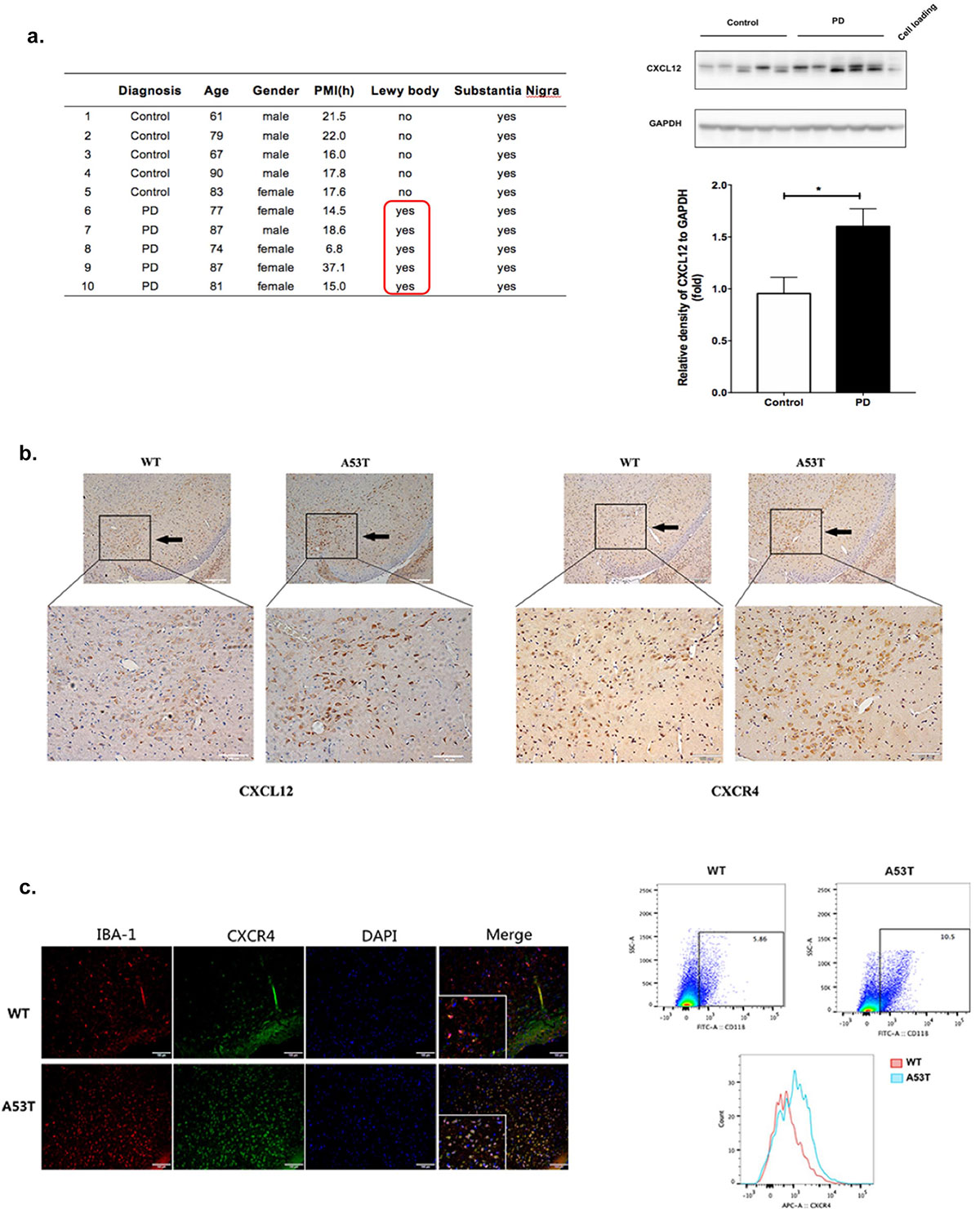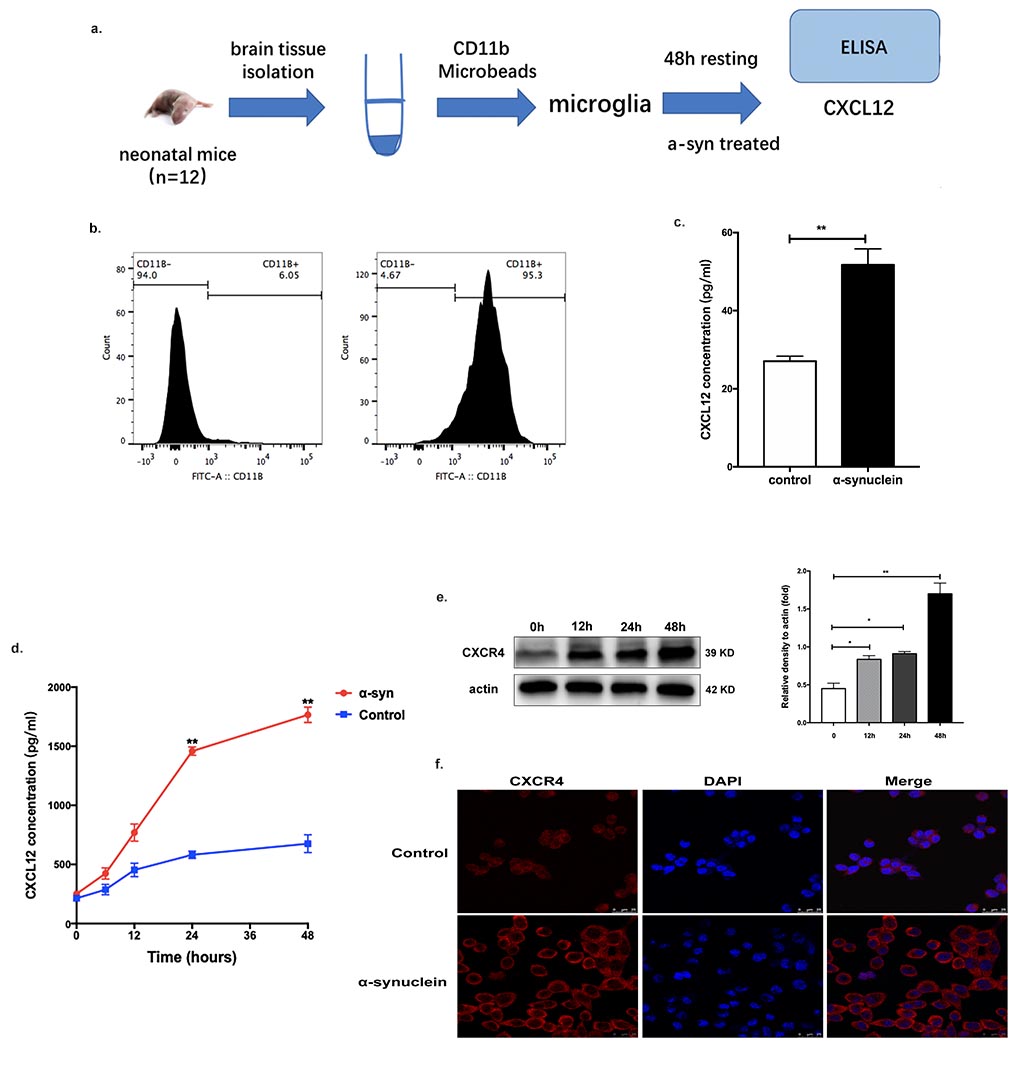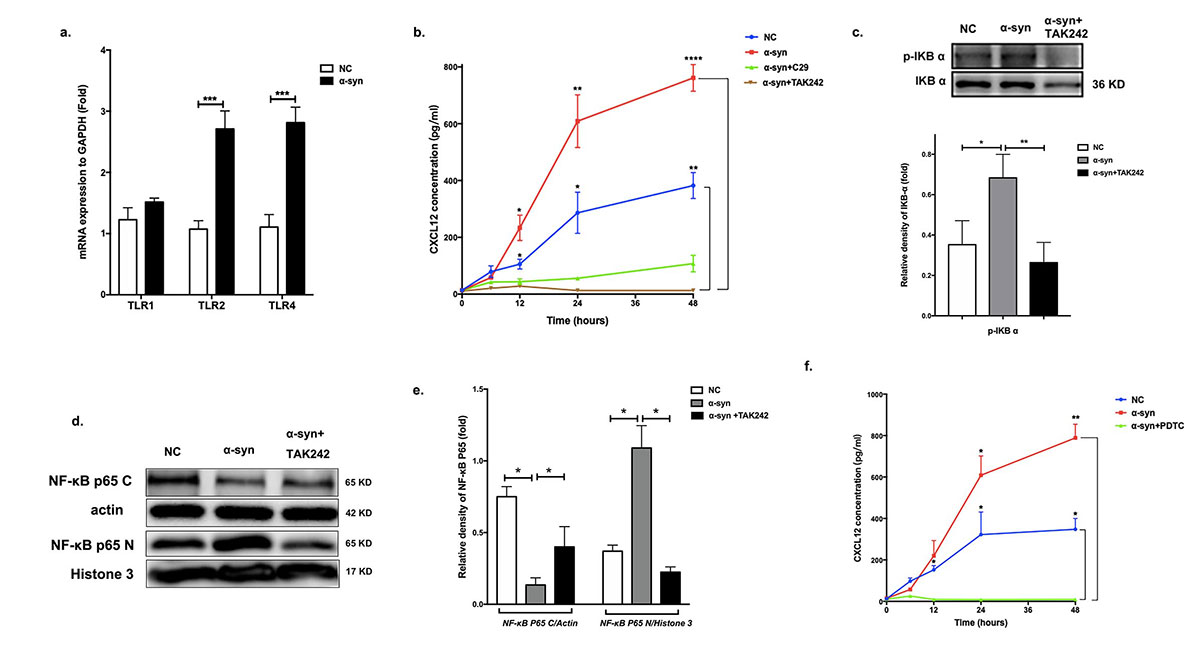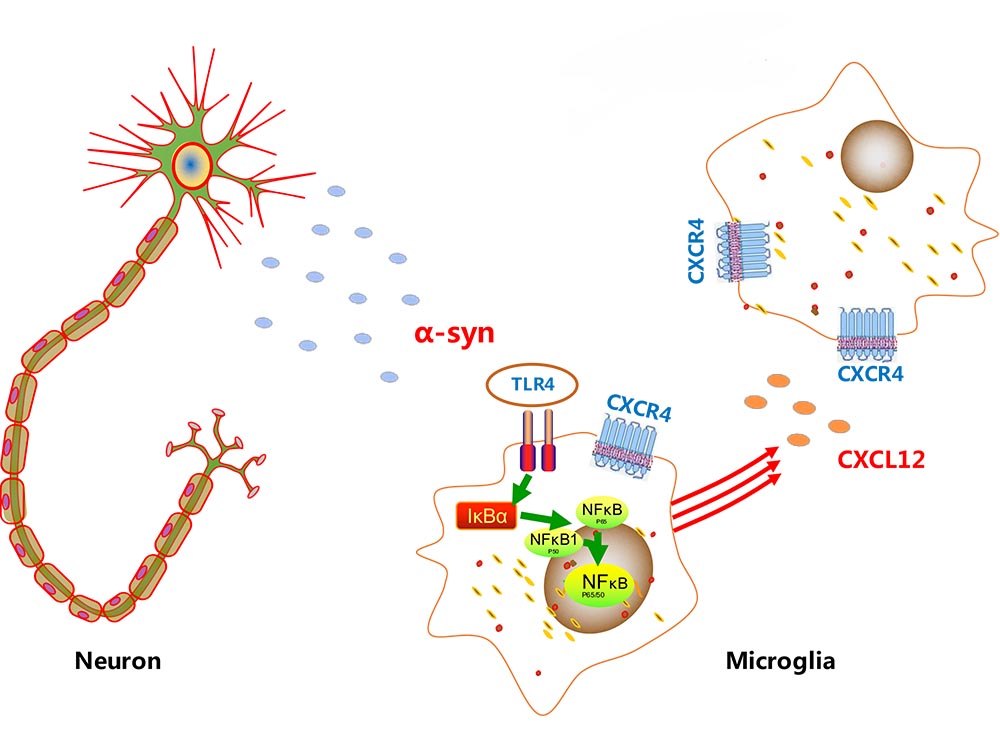Session Information
Date: Tuesday, September 24, 2019
Session Title: Parkinsonisms and Parkinson-Plus
Session Time: 1:45pm-3:15pm
Location: Agora 3 West, Level 3
Objective: Activated microglia and increased cytokine levels could precede neurodegeneration in neuro-inflammation in A53T mice, and CXCL12 was found increased in plasma CNS-derived exosomes, which was positively corelated with the concentration of α-synuclein. We hypothesized that CXCL12 could be a mediator in the α-synuclein induced inflammation.
Background: The underlying pathogenesis of PD remains elusive, but current opinions and perspectives on the subject have focused on the inflammation process induced by microglia in Substantia Nigra (SN), contributing to α-synuclein-mediated toxicity.
Method: Based on the establishment of appropriate animal and cell-culture models and the examination of clinical tissue specimens, we explored the relationship between α-synuclein and the target protein in α-synuclein transgenic mouse, BV2 cell line and primary microglia.Based on the establishment of appropriate animal and cell-culture models and the examination of clinical tissue specimens, we explored the relationship between α-synuclein and the target protein in α-synuclein transgenic mouse, BV2 cell line and primary microglia.
Results: We confirmed the positive correlation between α-synuclein and CXCL12, of which PD patients presented an elevated level both in postmortem brain tissue (Figure 1a) and in SN of A53T mice brain tissue (Figure 1b). Furthermore, we found CXCR4 was upregulated in microglia in SN of A53T mice as well. Simultaneously, As expected, we found that α-synuclein could increase the production of CXCL12 both in primary microglia and BV-2 cells (Figure 2). Furthermore, the mechanism study revealed that α-synuclein could induce the secretion of CXCL12 via TLR4/IκB-α/NF-κB signaling in microglia cells (Figure 3).
Conclusion: Our study suggested that CXCL12 could be a potential biomarker for accessorily diagnosing PD, which was also a novel possible target for the prevention of α-synuclein triggered microglial response. As for AMD3100, one inhibitor of CXCR4, has been approved by FDA for autologous transplantation in patients with non-Hodgkin’s lymphoma (NHL) and multiple myeloma (MM) due to its effect on neutrophil mobilization1, further studies are needed to explore its potential effect on the prevention of neuroinflammation in PD by inhibiting CXCR4.
References: no
To cite this abstract in AMA style:
Y. Li, M. Niu, J. Liu. CXCL12 is involved in α-synuclein-triggered neuroinflammation of Parkinson’s disease [abstract]. Mov Disord. 2019; 34 (suppl 2). https://www.mdsabstracts.org/abstract/cxcl12-is-involved-in-%ce%b1-synuclein-triggered-neuroin%ef%ac%82ammation-of-parkinsons-disease/. Accessed April 26, 2025.« Back to 2019 International Congress
MDS Abstracts - https://www.mdsabstracts.org/abstract/cxcl12-is-involved-in-%ce%b1-synuclein-triggered-neuroin%ef%ac%82ammation-of-parkinsons-disease/




